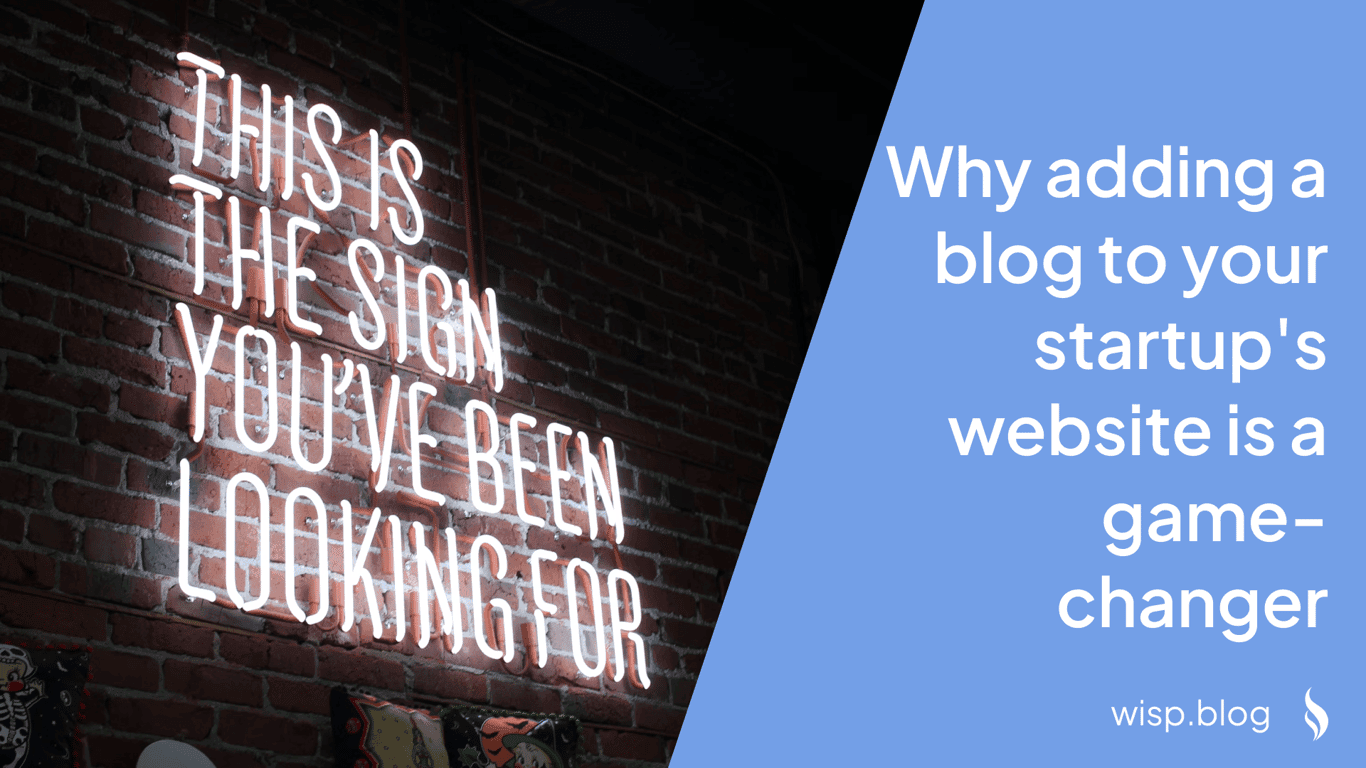
Starting a new business is already difficult enough without having to worry about blogging too. The thought of planning a blog strategy, writing content consistently, and promoting it feels like a full-time job in itself. You may be thinking "I'll just hire someone for that, but agency fees and freelance writers can get expensive real quick." Or maybe you're wondering "At what point in my business growth do I really need to start worrying about having a blog? I don't want to invest time and money into it if my main product fails."
You're not alone in feeling overwhelmed by the idea of blogging for your business. For many entrepreneurs and small business owners, it seems like an unnecessary burden on top of everything else required to get your company off the ground. Why bother with blogging when you could spend that time and money on product development, paid advertising, sales outreach, or other more direct revenue-generating activities?
The doubts and hesitations around blogging make sense when your focus is just on surviving the early startup phase. You have limited resources that need to be allocated very carefully. Taking on an ongoing content creation commitment could easily turn into a money pit that distracts you from your core business. Especially when it feels like everything that could be said about your industry has already been said a million times over by bigger competitors.
When Blogging May Not Be Appropriate
While blogging can be extremely valuable for most businesses, there are some situations where it may not make sense as a priority:
If your business is hyper-localized with no potential for online/national growth. For example, a neighborhood dry cleaner or restaurant with a very small service radius.
If your target customers don't typically use the internet or read blogs related to your industry. For example, an Amish furniture maker or a business catering to elderly customers without much online presence.
If you're operating in a very low-competition niche where online visibility isn't important. For example, a B2B manufacturer of a niche industrial product with only a handful of buyers.
If you have a short-term pop-up or seasonal business model. For example, a Christmas tree lot or pumpkin patch that's only open a couple months per year.
For most product or service-based businesses today though, an online presence through blogging is critical for reaching and engaging your target audience in our increasingly digital world. If you want your business to show up, get noticed, and earn the trust of your ideal customers, a strategic blog is one of the most valuable assets you can create.
Blogs are investments that pays massive dividends
What if I told you that a blog is one of the most valuable assets you could create for your business from day one? A strategic blog positions you as the leading expert in your niche, builds trust with your ideal customers before you even talk to them, and generates a steady stream of warm leads into your sales funnel. All of this translates into higher conversion rates, larger deals, and faster growth.
While blogging may seem like an upfront investment with delayed rewards, it actually pays massive dividends both short-term and long-term. A well-executed blog is the ultimate one-two punch of content marketing and SEO that makes your business more visible, credible, and compelling than competitors who ignore it.
Here are 5 reasons why starting a blog should be a priority, no matter what stage your business is in:
Establish Topical Authority and Trust: By consistently publishing high-quality, in-depth content around your product/service offerings, you demonstrate a level of expertise that customers find trustworthy. This topical authority makes them more likely to choose you over competitors.
Attract Organic Search Traffic: Each blog post is a new page that can rank in Google for relevant keywords. Over time, this compounds into a significant stream of free, passive traffic of people actively looking for what you offer.
Nurture Leads Through the Funnel: Your blog gives you a way to stay top-of-mind with prospects through your email list and retargeting ads. This nurturing helps convert more of your leads into customers.
Repurpose Content into Lead Magnets: Those in-depth posts can be repackaged into guides, checklists, videos and other premium lead magnets to generate more email opt-ins.
Reduce Customer Acquisition Costs: By attracting inbound organic traffic and leads, you rely less on paid advertising to drive awareness. This allows you to acquire customers at a much lower cost.
While blogging does require an upfront investment of time and resources, the ROI in terms of lead generation, sales enablement, and reduced acquisition costs makes it one of the most valuable marketing channels for any modern business.
The bottom line is that in today's digital age, your business's online presence and ability to get found by your ideal customers is just as important as your product or service itself. A strategic blog allows you to check all of those boxes by establishing expertise, generating organic traffic, nurturing leads, and reducing customer acquisition costs. So while blogging may seem like an unnecessary burden now, it's actually one of the most important investments you can make into the long-term growth and success of your business.


